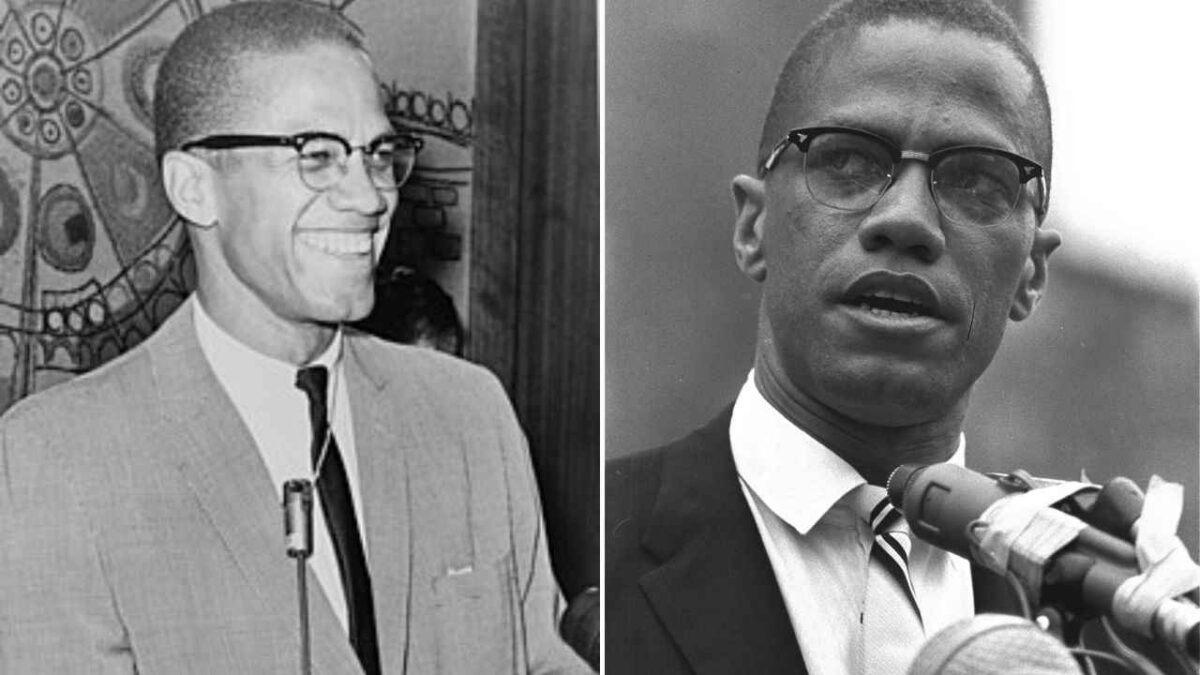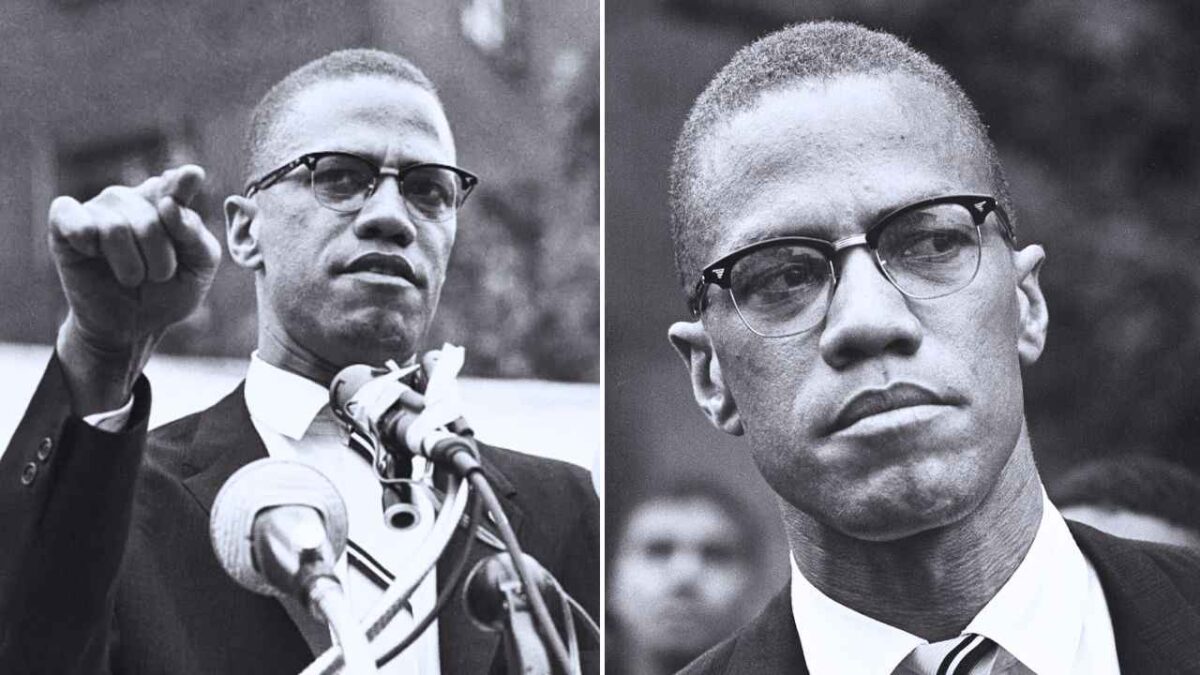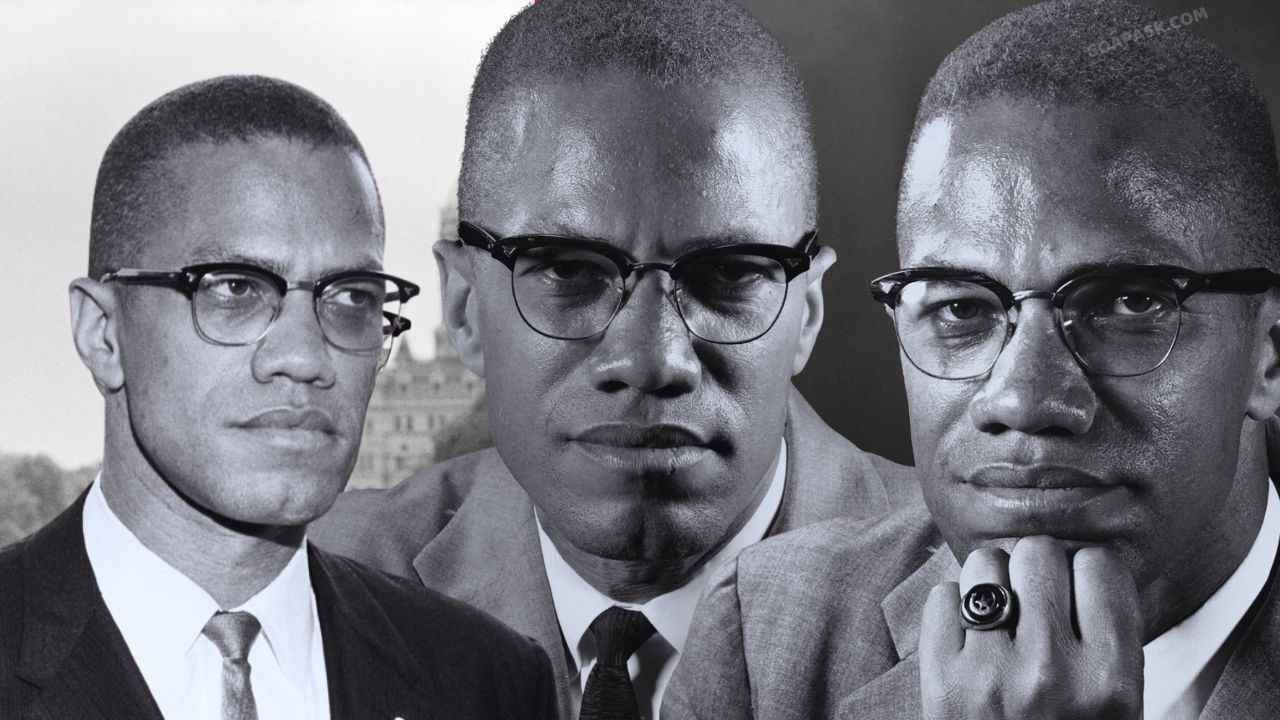Louise and Earl Little gave birth to Malcolm Little on May 19, 1925, in Omaha, Nebraska. Malcolm X, the nation’s most visible proponent of black nationalism, challenged Martin Luther King, Jr.’s multiracial, nonviolent approach, setting the tone for the ideological and tactical conflicts that occurred during the 1960s black freedom struggle.
Given Malcolm X’s abrasive criticism of King and support for racial separatism, it is unsurprising that King rejected occasional overtures from one of his harshest critics.
Following Malcolm’s assassination in 1965, King wrote to his widow, Betty Shabazz: “While we did not always agree on how to solve the race problem, I always had a deep affection for Malcolm and felt that he had the great ability to put his finger on the existence and root of the problem” (King, 26 February 1965).
Malcolm’s mother had been institutionalized by the end of the 1930s, and he was raised as a court ward in reform schools and foster homes by white guardians.

Malcolm joined the Nation of Islam (NOI) while incarcerated in Massachusetts on burglary charges. Shortly after his release in 1952, he relocated to Chicago and became a minister under Elijah Muhammad, shedding his “slave name” and adopting the moniker Malcolm X (“We Are Rising”). By the late 1950s, Malcolm had emerged as the NOI’s primary spokesperson.
What happened to Malcolm X’s father?
When Malcolm was six years old, his father died in a streetcar accident, though his mother, Louise, believed Earl had been murdered by the Black Legion.
Rumors that white racists were responsible for his father’s death were widely circulated and were very disturbing to Malcolm X as a child.
Threats from the Ku Klux Klan compelled the family to relocate to Lansing, Michigan, where his father continued to preach his controversial sermons despite ongoing threats.
The white supremacist Black Legion murdered Malcolm’s father in 1931, and Michigan authorities refused to prosecute those responsible.

Earl Little’s Controversial Demise
According to Malcolm X’s autobiography, Lansing African Americans believed his father’s death was the work of the Black Legion, a Ku Klux Klan-style hate group.
They allegedly murdered him before laying his body across the tracks for a streetcar to run over him. Malcolm was six years old at the time.
What is Malcolm X’s Legacy?
“Malcolm X’s legacy includes all of the social justice movements that emerged in the aftermath of his death. It’s the Black Panther Party.
It’s Black Lives Matter,” Mazucci tells TIME. “Malcolm was an organic intellectual who deeply loved black people; he gave his life to help them find ways to uplift and defend themselves.
“He was always a believer,” Ali adds. “He believes in a power greater than himself, which prompted him to fantasize about black people’s freedom, which was not widely available at the time.”
Read Also – What happened to Lisa Murphy? Is Lisa Murphy dead?
